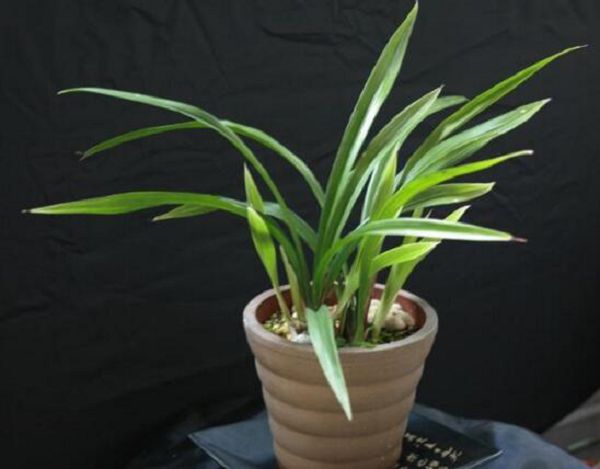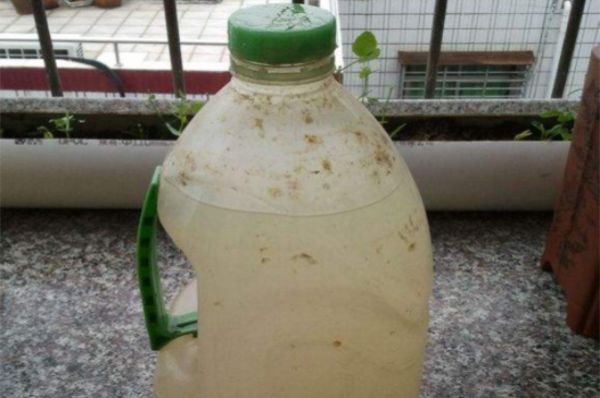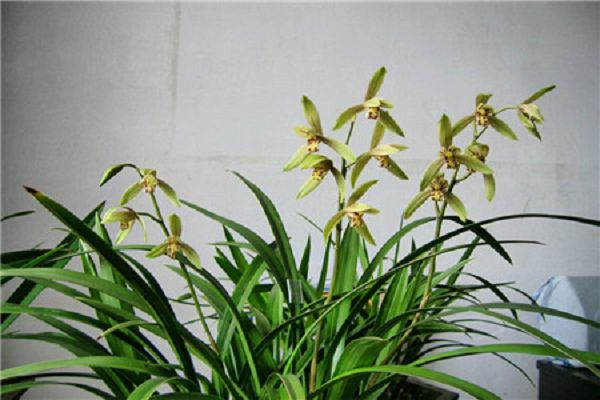How to make orchids take root and count the methods of rapid rooting of orchids

The cultivation of orchids is relatively complicated and is not easy to reproduce. If rotten roots or empty roots appear when cultivating orchids, after dealing with the disease, orchids may lose their roots, and without roots, they will not be able to absorb water and nutrients. Therefore, we need to make it grow new roots and how to let orchids take root. Some experienced flower friends have given some breeding experience. Today, we will take stock of the methods of rapid rooting of orchids.
First, the method of making orchids take root 1. Soil
To grow orchids, it is best to use humus soil on the mountain, remove other grass roots and impurities, put them in the sun and sterilize, dry in the shade for a few days, or use special orchid mud, which can also be configured by yourself. require air permeability, acid, drainage, such soil planting orchids, it is possible to make orchids take root.
2. Disease and pest protection
Rootless orchids are easily infected with germs and insect pests. How to make orchids take root, we must first ensure its health and pay attention to the protection of diseases and insect pests. Before the orchid takes root, the root can be wrapped with water moss, which can keep the root clean and moist, promote the orchid to take root quickly and avoid being attacked by diseases and insect pests.
Methods for rapid rooting of orchids 1. Planting of miscellaneous wood chaff
To make orchids take root quickly, they can be planted with fresh wood chaff. The cultivation of orchids with fresh wood chaff can be moisturized, ventilated, breathable and drained quickly, which is beneficial to the root development of orchids. Because the miscellaneous wood bran is loose, the gap is big, and the moisture retention is strong, it can provide a good rooting environment for orchids. It should be noted that the time to use miscellaneous wood chaff should not be too long, and the orchid should be replaced immediately after taking root.
2. Adjust the pH.
The rapid rooting of orchids can promote rooting with a suitable acidic substrate by adjusting the pH of the soil. Specific operation: can be watered with diluted salicylic acid solution, or alcohol-soluble aspirin powder diluted with a lot of water, slowly watered to the orchid.
3. Fertilization promotes growth.
Rootless orchids can not absorb nutrients and water through their roots, but can only use leaves and stems to protect their stems from diseases and insect pests, and promote the growth of orchids by spraying water and fertilizer to the leaves to make them grow new roots quickly. Orchids are fertilizer-loving plants, which should be given base fertilizer when planting, and liquid fertilizer and foliar fertilizer should be sprayed during the growing period.
4. Temperature control pruning
The environment in which orchids are born is neither cold nor hot, so it is necessary to give orchids a suitable temperature to take root quickly, keep them warm when they are cold, and cool down when they are hot; in addition, they should be properly pruned to remove diseased leaves and withered leaves in the process of orchid rooting to reduce nutrient loss.
3. Propagation methods of orchids
The above inventory of the rapid rooting of orchids, the following we will introduce this flower of the four gentlemen of the orchid, how to reproduce. There are two ways of propagation of orchids: ramets and seeds.
1. Ramet
The ramet propagation of orchids is generally carried out in spring and autumn. Gently pull the mother plant out of the basin, slowly remove the soil, cut off the dead leaves and rotten roots, wash the roots with clean water, dry, cut open from the middle of the false bulb with a sharp knife, apply plant ash to the wound, dry and plant after the wound heals. The new plant that has just been planted is first placed in the shade to rest and wait for its recovery point to be maintained normally.
2. Seeds
The seed propagation of orchids should be carried out artificially, because the seeds of orchids have no germ, it is difficult to germinate by themselves after sowing, and need to be promoted manually. The specific operation is in the early days when artificial inoculation of fungi, the use of fungi is orchid seeds germinated slowly. There are also orchids that directly sow seeds and germinate.
Related
- Is the orchid suitable for indoor use? Is it good for the body?
- How to prevent the empty root of orchids?
- What to do after the crab claw orchid is withered?
- Why are the leaves of orchids always yellow? Fertilizing and watering.
- Can the root of the gentleman orchid be saved if it is rotten?
- Diagnosis and treatment of cotton-blowing beetle insects in Cymbidium
- There is a way for a gentleman's orchid to rot.
- What is the most suitable temperature and humidity for the orchid?
- How to raise a gentleman's orchid? Cultivation techniques of Cymbidium
- How to prepare the nutritive soil for the cultivation of Cymbidium



